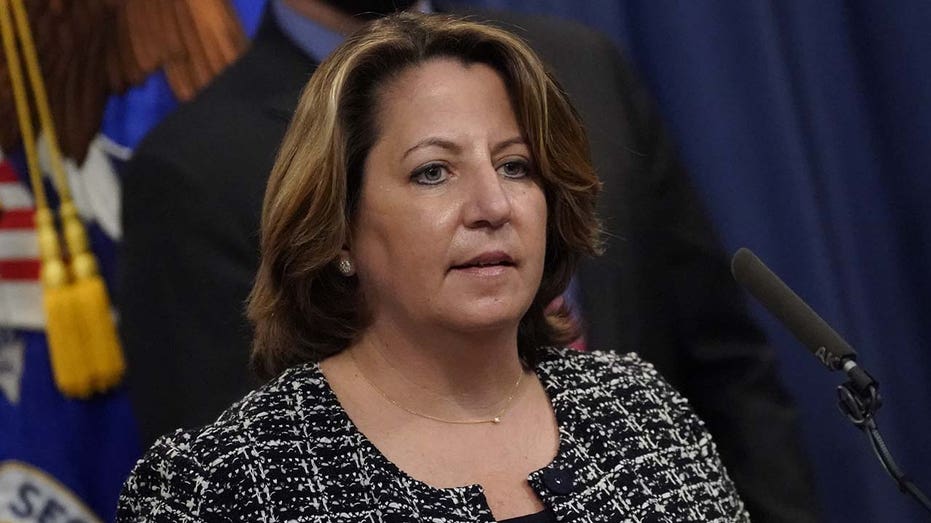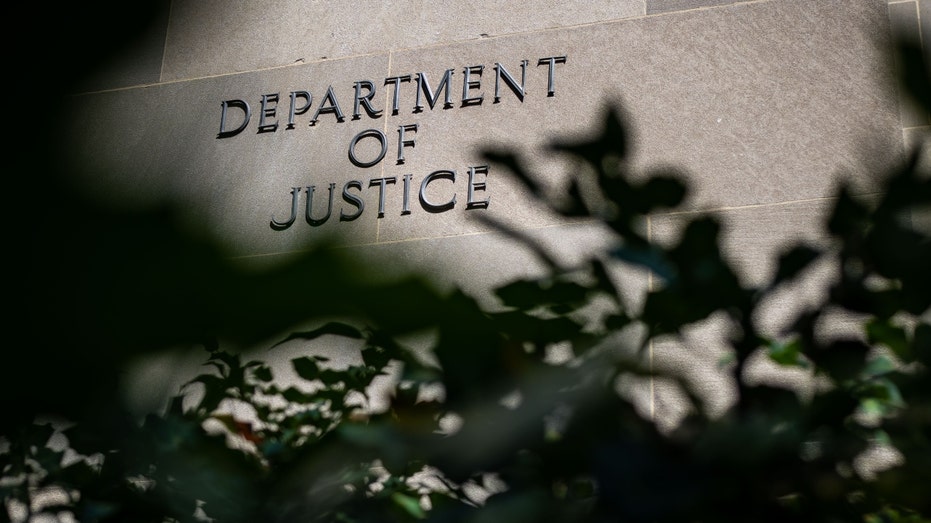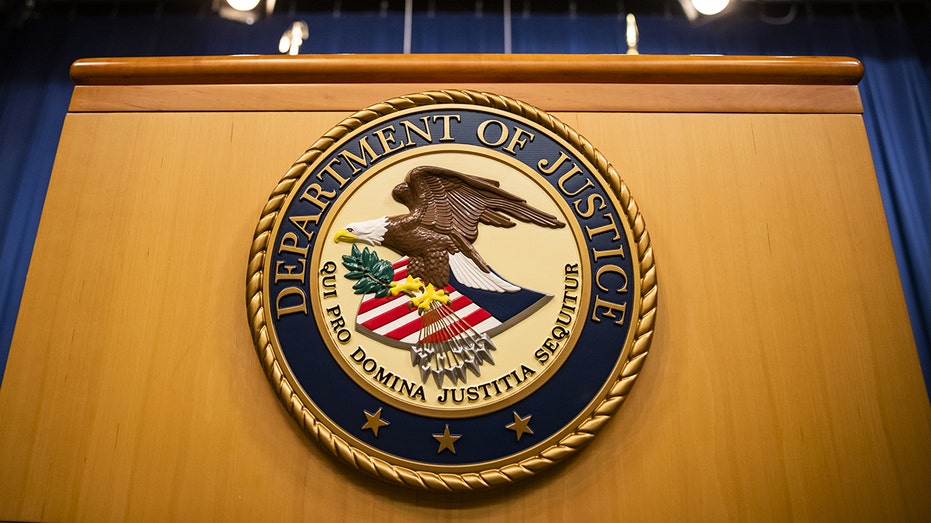DOJ's Monaco unveils 'incentives and deterrence'-based policies for corporate criminal enforcement
The policies involve 'incentives and deterrence'
FOX Business Flash top headlines for September 16
Check out what's clicking on FoxBusiness.com
Deputy Attorney General Lisa Monaco announced new "incentives and deterrence"-based policies for the agency's approach to enforcing corporate crimes Thursday.
Monaco reiterated while speaking at New York University that the Department of Justice's (DOJ) "top priority" for corporate criminal enforcement was "going after individuals who commit and profit from corporate crime," according to prepared remarks published by the agency.

Lisa Monaco, deputy U.S. attorney general, speaks during a news conference at the Department of Justice in Washington, D.C., Nov. 8, 2021. (Ting Shen/Bloomberg via Getty Images / Getty Images)
She said the DOJ will require cooperating companies to "come forward with important evidence more quickly." The agency will reduce or deny cooperation credit to companies if there is any "undue or intentional delay" in producing information pertaining to possible misconduct, particularly in instances of evidence showing individual culpability.
FTC PROMISES CRACKDOWN ON COMPANIES TAKING ADVANTAGE OF GIG WORKERS
For companies to receive cooperation credit, they must provide all non-privileged information about all people involved in whatever misconduct is under investigation, the DOJ said in October.
During her prepared remarks, Monaco announced every DOJ unit prosecuting corporate crimes that does not already have a program incentivizing companies to do voluntary self-disclosures will have to create one in line with "common principles."

The Department of Justice building Aug. 18, 2022, in Washington, D.C. (Kent Nishimura/Los Angeles Times via Getty Images / Getty Images)
"Absent aggravating factors, the department will not seek a guilty plea when a company has voluntarily self-disclosed, cooperated and remediated misconduct," the deputy attorney general said. "In addition, the department will not require an independent compliance monitor for such a corporation if, at the time of the resolution, it also has implemented and tested an effective compliance program."
Last year, the DOJ said it would consider a company's history of violations when deciding on the resolution of a corporate case. Monaco outlined further guidance on how the agency will evaluate histories Thursday.
JUSTICE DEPARTMENT ANNOUNCES COVID FRAUD STRIKE FORCE TEAMS
When considering instances of prior misconduct, the "most significant" types will be past criminal resolutions in the U.S. and past wrongdoings committed by the same leaders or employees, Monaco said. The agency will give "less weight" to criminal resolutions from over 10 years ago and civil or regulatory resolutions from over five years prior, according to her remarks.

The U.S. Department of Justice seal on a podium in Washington, D.C., Aug. 5, 2021. (Samuel Corum/Bloomberg via Getty Images / Getty Images)
However, she warned that companies "cannot assume" they are "entitled to [a non-prosecution or deferred prosecution agreement], particularly when they are frequent flyers."
She also said that when evaluating firms' compliance programs, prosecutors will now look at their compensation systems to see if they promote compliance and discourage criminal behavior.
CLICK HERE TO READ MORE ON FOX BUSINESS
According to her prepared remarks, she asked the DOJ's criminal division to create guidance on rewarding companies that use clawback provisions, contractual clauses that allow employers to take away previously paid-out money when employees engage in misconduct.
"Companies should feel empowered to do the right thing — to invest in compliance and culture and to step up and own up when misconduct occurs," Monaco said.




















